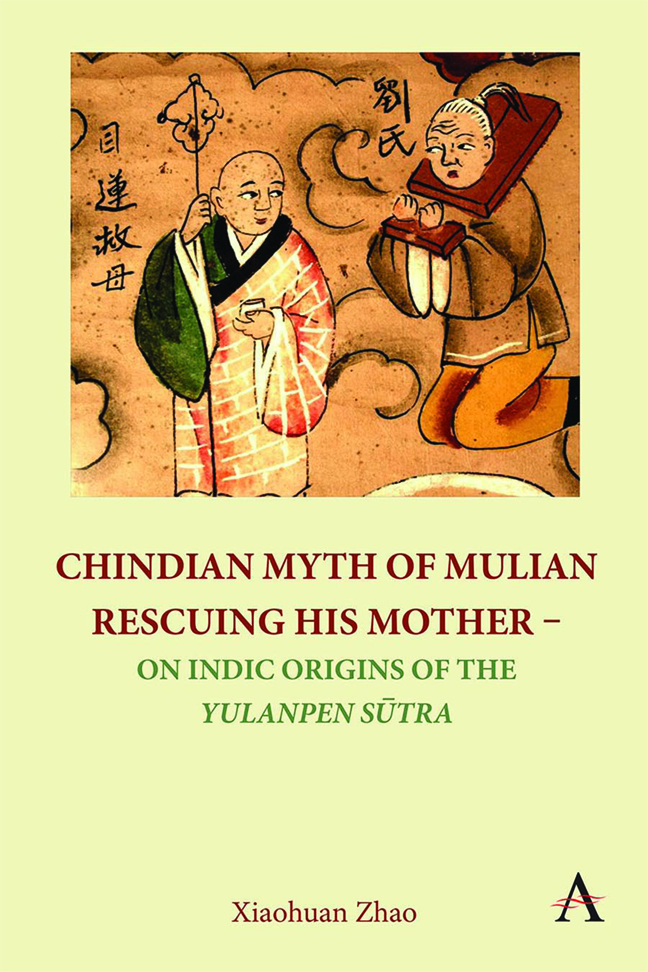Conclusion
Published online by Cambridge University Press: 02 March 2024
Summary
As we have seen, there has been a great deal of debate and discussion on the origin(s) of the Yulanpen Sūtra and the meaning of the word, yulan/yulanpen. Because of no such sūtra or word found extant in Indic sources and also because of its stress on filial piety and ancestor worship, among others, the sūtra is now overwhelmingly viewed as an indigenous Chinese Buddhist text, although it has never been labelled as an apocryphal scripture in Chinese Buddhist catalogues. A critical review of the major arguments prevailing in modern scholarship against the authenticity of the sūtra and a close examination of extensive textual and contextual evidence concerning the Yulanpen Sūtra strongly suggest a conclusion – contrary to the popular view – that the Yulanpen Sūtra is not a Chinese Buddhist creation but most probably a Chinese creative translation. Although there is no extant story or sūtra in Indic sources known to us, the storyline and subject matter of the Mulian myth are first and foremost Indian as evidenced by numerous Jātaka, and particularly Avadānaśataka and Petavatthu stories in Indian Buddhist literature as well as in pre- and non-Buddhist classics such as the Manusmṛti and Mahābhārata.
The same may be said of the Yulanpen Festival on the fifteenth day of the seventh month. Rather than modelled on the Zhongyuan Festival, the Yulanpen Festival was directly inspired by the Yulanpen Sūtra with its roots going back to the Pravāraṇā/Kathina Ceremony performed at the close of rainy-season (summer) retreat throughout the cultural sphere of Indian Buddhism, although there is no denying the absorption into it of ritual and religious elements from Daoism and Confucianism in its historical development from a Buddhist ritual of sacrifice to a popular ghost festival widely observed in the Sinitic world and beyond.
With regards to filial piety and ancestor worship that feature prominently in the Yulanpen Sūtra, they are not at all in conflict with Indian Buddhism but entirely in conformity with Indian religious practices that are traceable to the Vedic Age (ca. 1500–ca. 500 BC) and still observable in the rite of śrāddha, although they may not be so central to Buddhism as to Confucianism.
Last but not least, the occurrence in the Yulanpen Sūtra of the words and expressions that are found native to Chinese culture is actually a widespread phenomenon in early Chinese translations of Indian Buddhist texts.
- Type
- Chapter
- Information
- Chindian Myth of Mulian Rescuing His MotherOn Indic Origins of the Yulanpen Sūtra, pp. 75 - 76Publisher: Anthem PressPrint publication year: 2023



